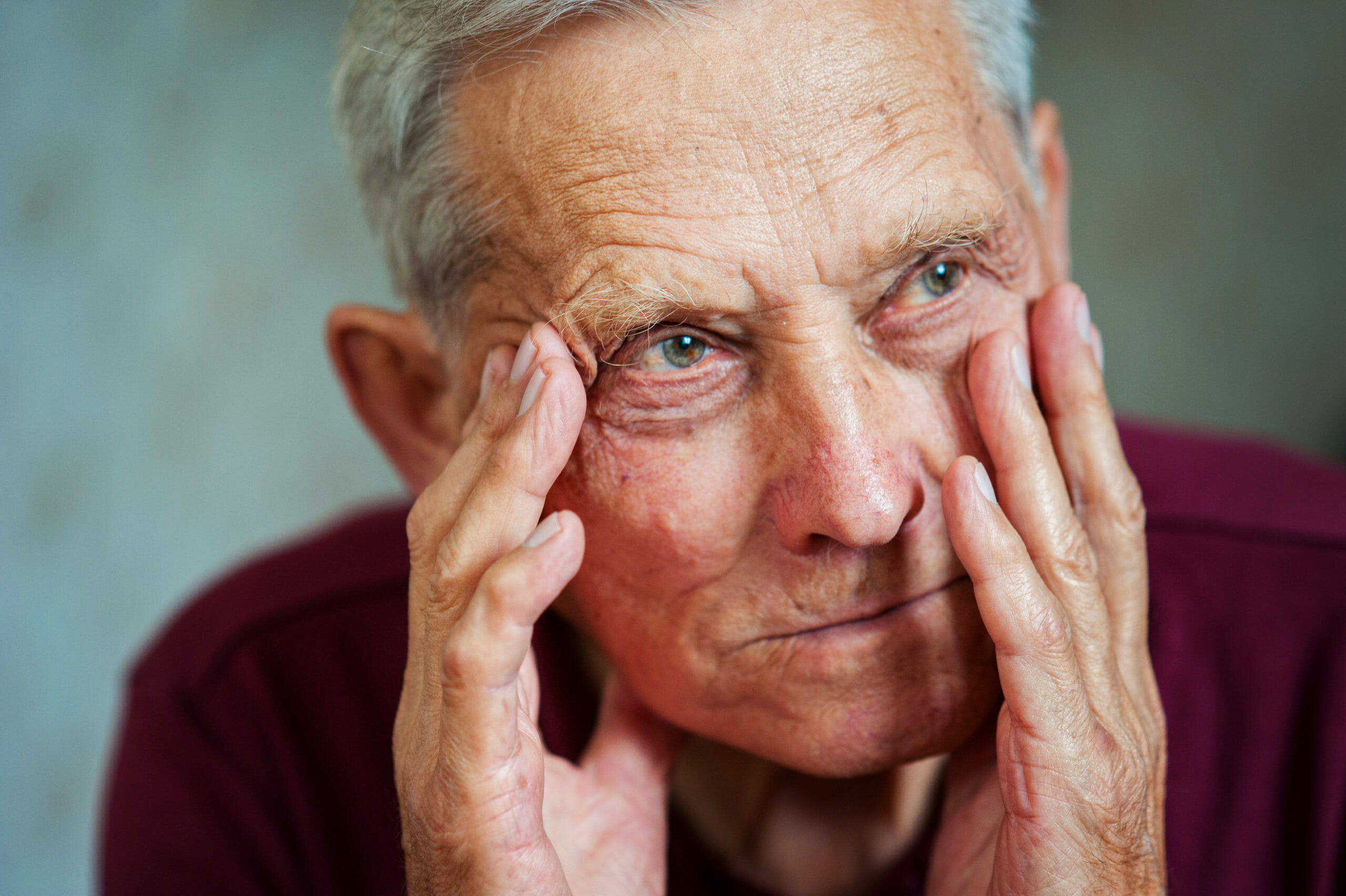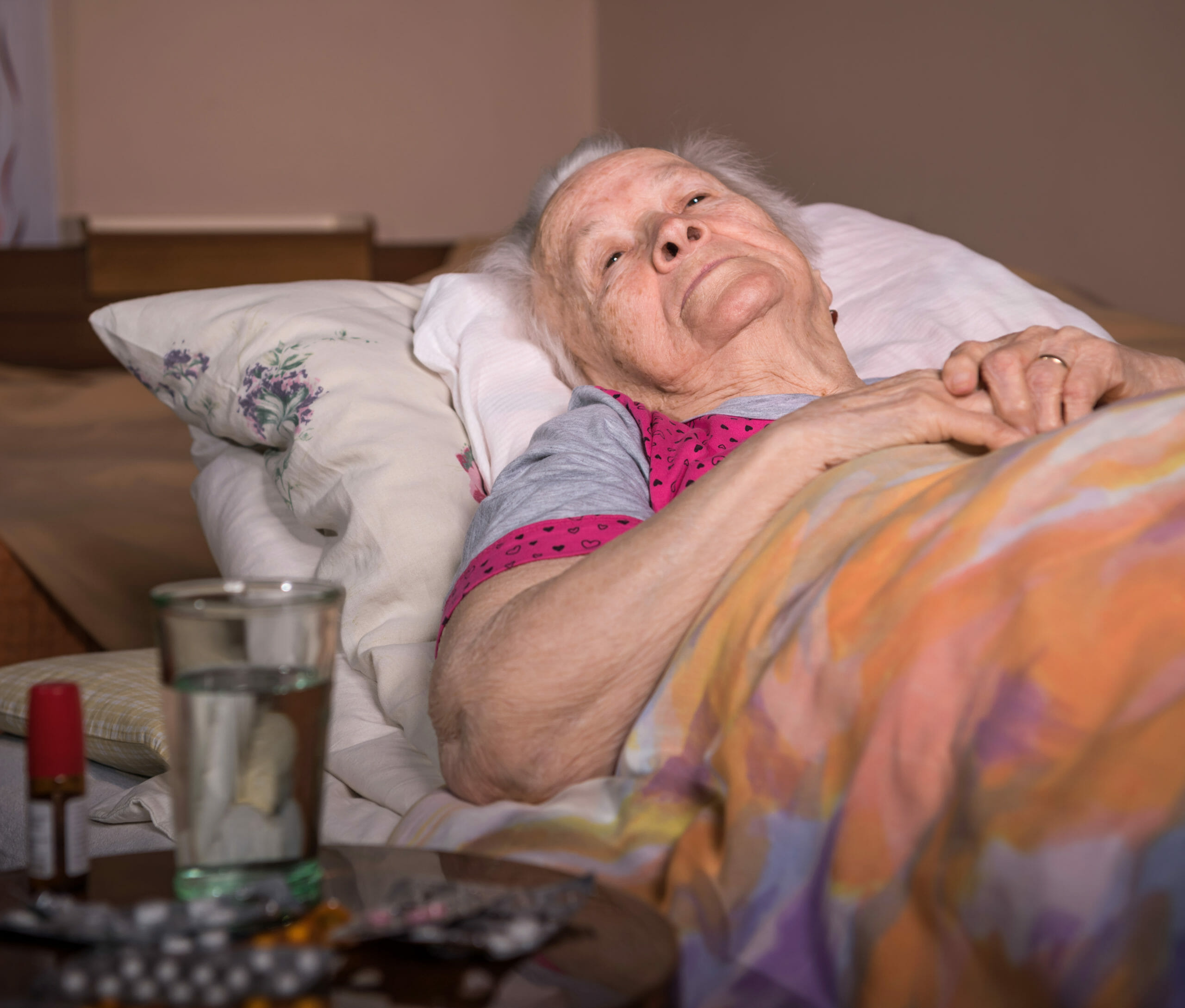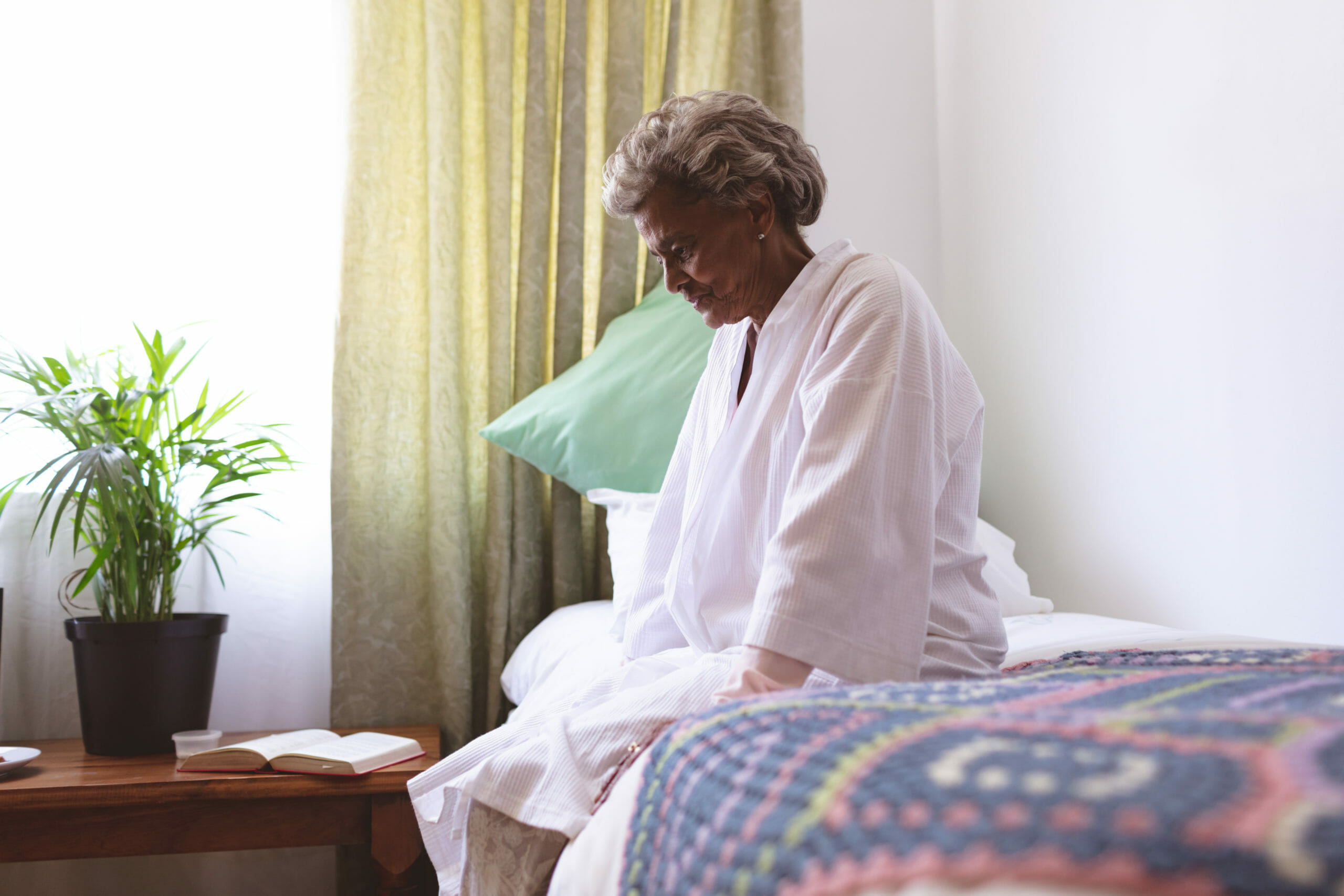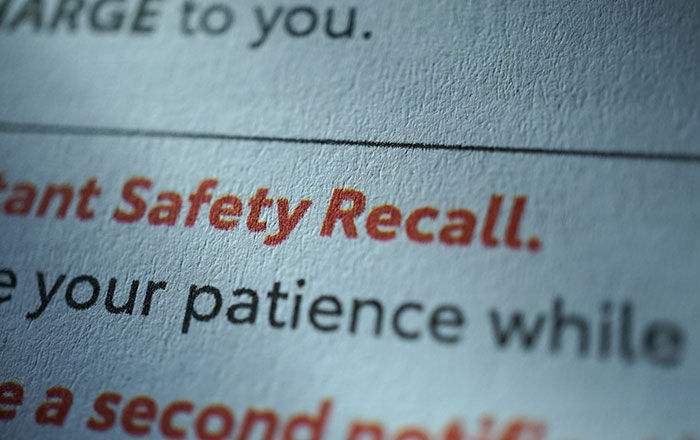Nursing Home Abuse Attorney in South Carolina
Special Covid-19 Nursing Home Information
Moving a loved one into a nursing home is a major emotional decision. Although no one ever wants to relocate an elderly family member to a long-term care facility, doing so is sometimes necessary. In that situation, the best-case scenario is to find nursing home facilities that are full of caring and attentive staff.
It’s always advised to research nursing homes as much as possible, reading reviews and making in-person visits before committing to a particular facility. But sadly, even nursing homes that seem to tick all the boxes can be rife with neglect and abuse.
If you suspect your loved one has fallen victim to abuse or nursing home negligence at an assisted living facility, the South Carolina nursing home abuse attorneys at McWhirter, Bellinger & Associates can help.
What kind of abuse happens in nursing homes?
Nursing home residents can experience any number of abusive situations, all of which are extremely serious. Nursing home abuse involves several different types of neglect or abuse.
Here are some examples of the types of nursing home neglect experienced by residents:
- Physical harm
- Psychological abuse
- Emotional abuse
- Sexual abuse
- Abuse through medication
- Financial exploitation
- Neglect
What are the signs of nursing home abuse?
Signs of nursing home abuse and neglect vary, depending on the kind of abuse that is being committed. While each case is unique, here are some common indicators to look out for:
- Bed sores
- Pressure ulcers
- Unexplained injury
- Bad personal hygiene
- Infections
- Broken bones
- Unexplained venereal diseases
- Signs of hygienic neglect
- Malnutrition and dehydration
- Sudden and drastic weight loss
- Behavioral changes
Some common indicators could be of the nursing home itself:
- Inadequate supervision
- Non certified nursing assistants
- Poorly maintained
In addition to physical and emotional indicators, it is also important to monitor your loved one’s financial situation. If you start to see mysterious charges or the assisted living facility is demanding money for vague reasons, your loved one could be experiencing financial abuse. It is important to speak with a nursing home abuse lawyer, who can help you better understand your options in a nursing home abuse case.
How common is nursing home abuse?
Nursing home abuse happens all too often in South Carolina and across the country. One local example took place in 2019, when a man hid a camera in the room of his 89-year-old mother’s Greenville nursing home, which showed that staff members were being physically and psychologically abusive towards her.
That same year, a Senate Finance Committee hearing heard two heartbreaking testimonies:
- One woman spoke about her mother dying as a result of alleged neglect at the Iowa nursing home she lived at for 15 years
- Another woman recounted learning that her mother, who was living with advanced Alzheimer’s disease, had been raped by a nurse at her Minnesota care facility
At the same hearing, Chairman Chuck Grassley (R-Iowa), who sponsored a nursing home reform act known as the 2017 Elder Abuse Prevention and Prosecution Act, called the abuse of elderly people in nursing homes a “systemic” problem. “Hardly a week goes by,” he noted, “without seeing something about nursing home abuse or neglect in the national news.”
It is important to remember that while the vast majority of nursing home residents are elderly, not all of them are. One of the most horrific cases of nursing home negligence occurred in 2018, when a 29-year-old woman in a vegetative state gave birth to a baby. A staff member at her care facility was ultimately charged with sexual assault and vulnerable adult abuse.
What rights do nursing home residents have?
Both the federal government and the state of South Carolina have laws which protect nursing home residents and hold staff members accountable for preserving the dignity and health of residents as much as possible. The US government signed the Nursing Home Reform Law into effect in 1987, and South Carolina has a Bill of Rights for residents of long-term care facilities.
Under both laws, South Carolina nursing home residents have the following rights:
- The right to be treated with dignity and respect
- The right to make their own schedule and participate in activities they choose
- The right to not be discriminated against, as defined by Civil Rights laws
- The right to be fully informed in writing of all services, policies, and related charges
- The right to choose a personal attending physician
- The right to be free from mental or physical abuse
- The right to be informed of their resident rights
This is not a full list of the rights afforded to South Carolina nursing home residents, but it gives a good idea of the type of treatment that should be expected.
What is The Most Common Abuse in Nursing Homes?
According to a 2017 study by the World Health Organization (WHO), 64.2% of staff in institutional settings such as nursing homes reported perpetuating some form of abuse in the year prior to being surveyed.
This finding is incredibly alarming, as WHO notes that elder abuse can lead to serious physical injuries and long-term consequences including the use of emergency services, hospitalization, and premature death.
The WHO study found that psychological abuse/emotional abuse was the most common type of abuse to take place in institutional settings, with 33.4% of abuse reported by older adults and their proxies and 32.5% reported by staff.
The National Center on Elder Abuse (NCEA) defines psychological/emotional abuse as “the infliction of anguish, pain, or distress through verbal or nonverbal acts.”
Psychological/emotional abuse acts can include:
- Verbal assaults
- Insults
- Threats
- Intimidation
- Humiliation
- Harassment
- Treating an older person like an infant
- Isolating an elderly person from his/her family, friends, or regular activities
- Giving an older person the “silent treatment”
- Enforced social isolation
Signs of psychological/emotional abuse can include:
- Being upset or agitated
- Being withdrawn and non-communicative/non-responsive
- Unusual behavior usually attributed to dementia (sucking, biting, rocking)
- An elder’s report of being verbally or emotionally mistreated
Physical abuse was the second most common type of abuse to take place in institutional settings, according to the study.
According to the NCEA, physical abuse is defined as “the use of physical force that may result in bodily injury, physical pain, or impairment.”
Physical abuse in nursing homes can include:
Striking (with or without an object)
- Hitting
- Beating
- Pushing
- Shoving
- Shaking
- Slipping
- Kicking
- Pinching
- Burning
- Inappropriate use of drugs and physical restraints
- Force-feeding
- Physical punishment of any kind
Signs of physical abuse include:
- Bruises, black eyes, welts, and lacerations
- Broken bones
- Skull fractures
- Open wounds, cuts, and punctures
- Sprains and dislocations
- Internal injuries/bleeding
- Broken eyeglasses/frames
- Signs of being restrained
- Laboratory findings of medication overdose or underutilization of prescribed drugs
- An elder’s report of being hit, slapped, kicked, or mistreated
- An elder’s sudden change in behavior
- A caregiver’s refusal to allow visitors to see an elder alone
Financial abuse was the third most common type of abuse found in institutions like nursing homes. The NCEA defines financial abuse as “the illegal or improper use of an elder’s funds, property or assets.”
Examples of financial abuse include:
Cashing an elderly person’s checks without permission
- Forging an older person’s signature
- Misusing or stealing an older person’s money or possessions
- Coercing or deceiving an older person into signing any document
- Improper use of conservatorship, guardianship, or power of attorney
Those who are particularly at risk for the types of abuse listed above are those who have functional dependence/disability, poor physical health, cognitive impairment, and poor mental health. Unfortunately, most nursing home residents suffer from one or several of these conditions, making them easy targets.
While the WHO study does shed light on the prevalence of abuse in nursing homes, it doesn’t begin to show the full extent of the abuse that takes place in such settings. In fact, the WHO estimates that only 4% of elder abuse is actually reported.
What Are the 3 Most Common Complaints About Nursing Homes?
Nursing home complaints can vary from person to person and facility to facility, but there are a number of grievances that are commonly shared by residents in South Carolina and beyond.
Slow response times
Slow response times are common in nursing home settings, particularly as 87% of nursing home providers are facing moderate to high staffing shortages, and 48% are struggling with severe shortages. These shortages result in staff members not responding to calls quickly enough, which can sometimes lead to serious consequences for residents. For example, if a resident needs help walking to the bathroom but it takes a staff member too long to respond to their call, they may fall while trying to walk to the bathroom alone.
Unsafe & poor quality food
Nursing homes are required to meet the dietary needs of each resident, but they often fall short – and sometimes the food they provide carries a safety risk. In fact, South Carolina ranked 13th in the nation for the most enforcement actions for violations of federal food safety standards in nursing homes in 2018 (the state tied with Kansas and Oklahoma). That same year, 33% of nursing homes in the United States were cited for violating the federal requirement to safely store, prepare, and serve food.
Then there’s the very fact that the quality of nursing home food is generally quite poor. When food quality is poor, residents are less likely to eat or finish their meals, which can lead to issues of malnutrition – and if that isn’t caught and dealt with by staff in a timely manner, neglect can occur.
Social isolation
Isolation is a very real problem among nursing home residents, as they may not receive visitors very often – and if they do, those visitors likely only stay for a couple of hours. It’s also important to remember that nursing home residents had a much different life before moving into the nursing home, and likely interacted with family, neighbors, friends, and pets on a regular basis. They probably drove a car or had another way to get around town. However, that freedom and sense of familiarity gets taken away when a person moves into a nursing home.
The COVID-19 pandemic also worsened isolation among nursing home residents, as visitors were banned from entering nursing homes.
Poor sleep
Nursing home residents often find it difficult to sleep due to disruptions from staff, other residents, and visitors. These disruptions could be as simple as voices in the hallway, or a staff member intentionally waking up a resident so they can take their medication. Nursing homes are 24/7 facilities, so peace and quiet is hard to come by (even in the middle of the night). In addition, residents often have to share a room with one or more people, which further increases the potential for noise.
Abuse
Unfortunately, abuse takes place in nursing homes across South Carolina and the rest of the United States. There are many different types of abuse, all of which can be extremely damaging and have a lasting impact on victims. We will discuss the various types of abuse below, as well as how to spot the various signs of abuse.
What is Classed as Neglect in a Nursing Home?
Neglect is a common form of abuse in nursing homes, and was the fourth most common type of abuse according to the WHO study. Neglect is defined by the NCEA as “the refusal or failure to fulfill any part of a person’s obligations or duties to an elder.”
Examples of neglect include:
- Failure to provide an elderly person with life necessities including food, water, clothing, shelter, personal hygiene, medicine, comfort, personal safety, and/or other essentials.
- Failure of a person who has fiduciary responsibilities to provide care for an elder
- Failure on the part of a service provider to provide necessary care
Signs of neglect include:
- Dehydration
- Malnutrition
- Untreated bed sores
- Poor personal hygiene
- Unattended or untreated health problems
- Hazardous or unsafe living conditions
- Unsanity or unclean living conditions
- An elder’s report of being mistreated
Human Rights Watch found that evidence of abuse has been more prevalent among nursing home residents since the COVID-19 pandemic began. After interviewing more than 60 people and analyzing reports from independent monitors, the organization noted an increase in signs of neglect including extreme weight loss, dehydration, untreated bedsores, inadequate hygiene, and mental and physical decline.
“In the most extreme cases, doctors treating nursing home patients, as well as death certificates seen by Human Rights Watch, suggest that these conditions may have contributed to deaths,” the organization said.
It went on to note that staffing shortages and the absence of family members may have contributed to “possible neglect and decline,” and urged federal and state authorities to investigate the situation and “ensure accountability for abuse.”
The organization also noted that such findings are an infringement on international human rights law, which states that everyone has the right to the highest attainable standard of health and to an effective remedy for violations of their rights, and that older people have the right to be protected from abuse, mistreatment, and neglect.
Neglect and other forms of elder abuse are unfortunately common across the United States, including in South Carolina, a state with 43,678 beds spread across 2,039 long-term care facilities. For example, the licenses of four assisted living facilities in the Palmetto State – two in Columbia and two in Charleston County – were suspended by the South Carolina Department of Health and Environmental Control in 2022.
In addition, more than 8,000 complaints are filed to the South Carolina Department on Aging’s Long Term Care Ombudsman Program each year.
If your loved one is in a South Carolina nursing home and you suspect they might be a victim of neglect or another form of abuse, it’s important to report the problem right away. Calling a South Carolina nursing home abuse lawyer is an excellent first step and will provide clarity on whether you have a case and what your next steps should be.
Do you suspect that your loved one has experienced nursing home abuse or neglect?
If you believe your loved one that is a nursing home resident, has suffered abuse or nursing home neglect, contact the law firm of McWhirter, Bellinger & Associates right away. When it comes to nursing home negligence, our attorneys understand personal injury law and are committed to fighting for what is right, and will do all they can to help your loved one receive the justice they deserve. Call our South Carolina nursing home abuse attorneys today at 803-590-9203 for a free case evaluation.


















